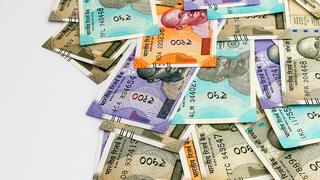In a well-functioning democracy, question hours of the legislature play an important role since they provide the platform to Opposition parties to question the ruling government, thus drawing attention to critical issues. But questions hours were quite curtailed in 2023, recording the shortest duration since 2019.
The 2023 Budget session from January 31 to April 6 saw the worst functioning question hours in the last five years. In Lok Sabha, the question hours lasted only for 19 per cent of the scheduled time, whereas in Rajya Sabha it was just 9 per cent.
Question hour is the dedicated one hour in every sitting of Parliament set aside for MPs to ask questions directly to the Ministers. The 2023 monsoon session also had just 16.6 per cent of scheduled time for questions in Lok Sabha and 28.3 per cent in Rajya Sabha.
Compared to this, the recently concluded winter session was much better. The unprecedented security breach, the protests that followed and the suspension of MPs disrupted most of its functioning, after the second week. However, the question hour functioned for 53 per cent of scheduled time in Lok Sabha and 72 per cent in Rajya Sabha.
The PRS Legislative Research notes that all starred questions (that required oral responses) that were asked by suspended MPs in the winter session were removed from the list. Also, no questions were answered orally on two days in Rajya Sabha and three days in Lok Sabha.
Declining trend
Analysis of the data shows that the MPs are quite enthusiastic about utilising the question hours in the beginning of the term. But this zeal recedes as the term progresses, with worst use of question hour in the last year of the term.
In 2019, question hour functioned for more than 60 per cent of scheduled time in both the houses during the Budget and winter sessions. The Budget session saw 95 per cent of the scheduled time for questions in Lok Sabha. However, since then, the duration of question hours has been reducing.
UPA tenure, no better
But this is not unique to the NDA government. In the 15th Lok Sabha from 2009 to 2014 also, there were several instances of the question hour being disrupted.
The biggest causality was the 2010 winter session and the 2012 monsoon session. In 2010, question hour functioned for only 5 per cent of the scheduled time in Lok Sabha, and there was no question hour in Rajya Sabha. Both houses saw protests over the UPA government’s reluctance to constitute a Joint Parliamentary Committee on the issue of 2G spectrum allocation.
In the monsoon sessions of 2012, only 5 per cent of the scheduled time for questioning was utilised in Lok Sabha, whereas 4 per cent in Rajya Sabha. This was due to the protests over the CAG audit of coal block allocations.
‘Attack on democracy’
Elamaram Kareem, CPI(M) Rajya Sabha MP said: “Usually, the question hour is scheduled from 12 noon to 1 pm in Rajya Sabha. But there is a decline because of poor management of the government. For instance, when the security breach happened, the Opposition wanted to discuss it in Parliament. But the government was not ready for it. As a result, there were protests. Then, they suspended several MPs and passed some crucial laws (criminal laws) without any discussion. .”
Jothimani Sennimalai, Congress Lok Sabha MP, said: “The decline of question hour is not an isolated issue, but is part of the larger attack on democracy. The floor of Parliament is meant for discussions.” She also pointed out that there is a filtration in the questions and only what the government wants to discuss is being taken up.








Comments
Comments have to be in English, and in full sentences. They cannot be abusive or personal. Please abide by our community guidelines for posting your comments.
We have migrated to a new commenting platform. If you are already a registered user of TheHindu Businessline and logged in, you may continue to engage with our articles. If you do not have an account please register and login to post comments. Users can access their older comments by logging into their accounts on Vuukle.